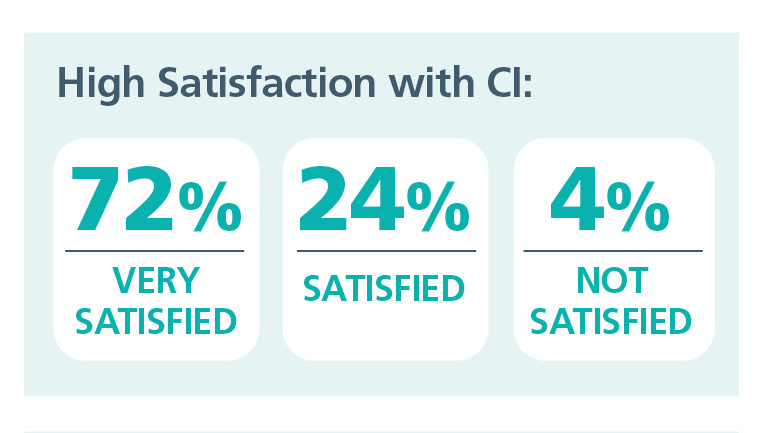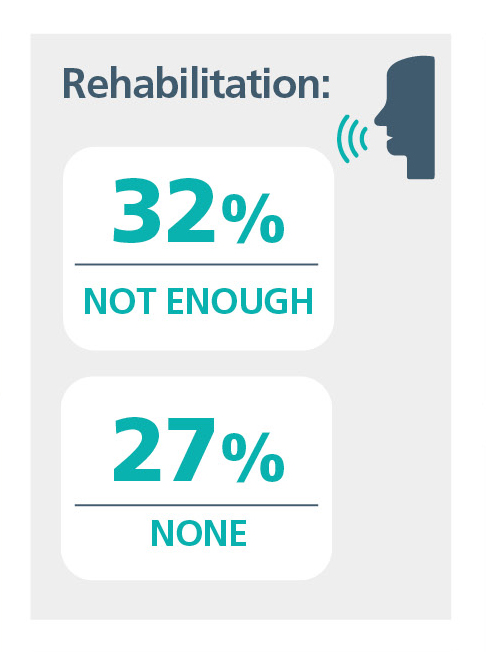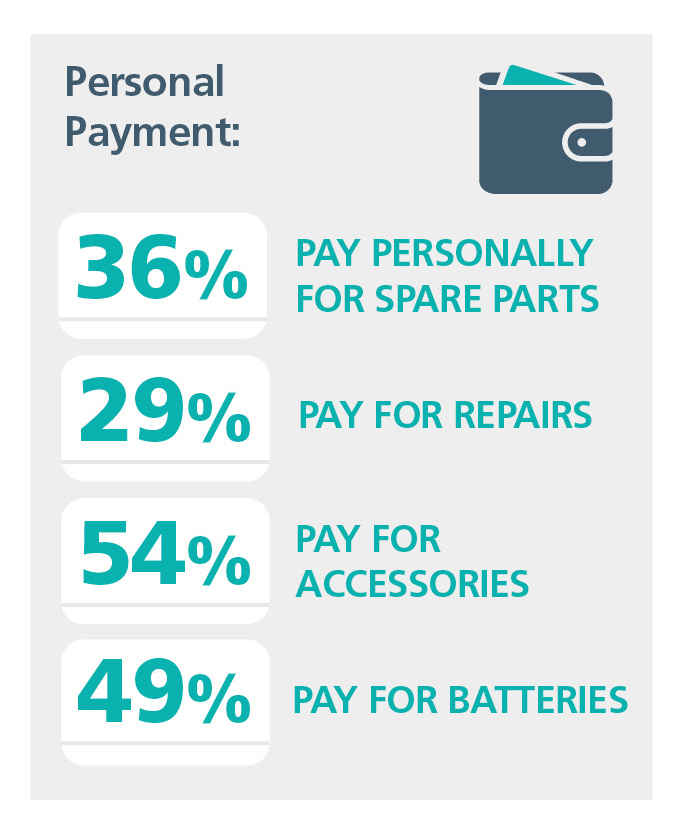REPORT FROM OUR GLOBAL CONSULTATION WITH ADULT CI USERS: CI SERVICES MATTER
We are delighted to share the report from our global survey of adults with CI. Download the full report here and download the Briefing here to share.

The First Global Survey of deaf and hard of hearing adults using cochlear Implants finds very high satisfaction rates and highlights the need for lifelong services to ensure lifelong communication.
The first ever global survey of deaf and hard of hearing adults with cochlear implants (CI) reveals that 96% expressed overall satisfaction with their implants with the same number being satisfied with the services they received.
Profoundly deaf users found that the implants transformed their abilities to hear and communicate in everyday life. As one user commented: “Going back to listening is priceless – my life has been completely changed for the better”.

However, the survey also revealed that users often struggled to get appropriate support and rehabilitation after surgery as they learned to use their implant, with 27% receiving no rehabilitation support and 32% feeling they did not have enough support. As another respondent said; “It would have been nice to have some support. I had no rehabilitation – I taught myself everything.”
These CI users were reliant on their CI for everyday communication and required lifelong technical support for the external parts of the device: “ I need services so that my CI will work and be supported right up to the day I die”.
Ongoing funding was also a major issue: 54% had to pay for important accessories and 26% did not have access to replacement processors, essential for the functioning of the Implant. A further 36% had to pay for repairs themselves.

Ongoing funding for the lifelong services is required: “We wish the high prices for our CIs would come down, it is impossible to get new accessories, new processors, etc”
The lack of ongoing services placed restrictions on users benefiting fully from cochlear implantation and their leading independent and productive lives. Lack of continuing investment in CI services and support also undermines the potential savings to health and social care systems from cochlear implantation.
We need significant changes in the way CI services are provided by health systems to ensure that these deaf and hard of hearing adults can retain their independence and that health and social care systems save on the increased burdens that would otherwise result. These changes include:
- Rehabilitation to be available from the beginning as part of the core provision of implant services.
- Quick and ready access to technology support when required, including spare parts such as processors, cables and coils, regular processor upgrades.
- Person-centred services, with access to appropriate peer group support and counselling services
- Funding to ensure sustainability of services and access to CI services throughout life.
Chair of CIICA Leo De Raeve said; “This survey is crucial in giving us a picture of how cochlear Implants are valued by users and the profound difference they are making to their lives. CIs provide access to communication and society while saving health and social care services money. If we are to make the most of this amazing development in global hearing health, we need also to ensure that the 1 million users of CI are fully supported in the long term and it is not only those with deep pockets who can afford to have this life enhancing support”.
A CI user summed up the impact of her implants:
“No implant: no sound, no family life, no friends, no job (I am a nurse), no birds, no cat’s purr, no wind in my ears, no sound of waves, no children’s laughter…. Implants= life.”
